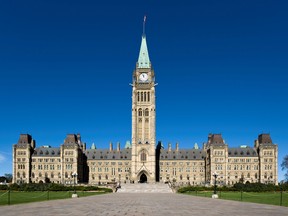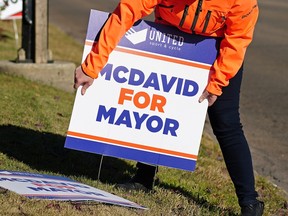Politics
Politician’s Integrity Questioned: A Call for Understanding

Former politician and publisher Dorothy Dobbie recently addressed a growing sentiment regarding the perceived dishonesty among political leaders. In her article, she posits that while politicians often face accusations of lying, the reality is more nuanced. Dobbie emphasizes that the majority of politicians act with integrity, driven by genuine intentions to serve their constituents.
She acknowledges the skepticism that arises from a history of political scandals, but argues that much of the blame lies in the information ecosystem surrounding politics. “Garbage in, garbage out,” she states, highlighting how misinformation can circulate from lobbyists to media outlets, ultimately affecting public perception. Dobbie points out that the most reliable information often comes from engaged and informed constituents, rather than from bureaucratic channels.
The Role of Media in Perception
According to Dobbie, the media plays a crucial role in shaping public understanding of political discourse. She critiques the tendency of news outlets to interpret statements made by politicians, often adding bias or context that alters the original message. This interpretation can lead to misunderstandings, where the essence of what was said gets lost. She notes that many people may leave a news conference with a skewed version of the facts, influenced by the media’s framing.
Dobbie also addresses the phenomenon of “the whole truth,” where individuals—including politicians—selectively present information that aligns with their pre-existing beliefs. This tendency, she argues, is a fundamental aspect of human nature. Rather than engaging in constructive debate, political discussions often devolve into emotional exchanges, with insults and exaggerated claims overshadowing substantive arguments.
Understanding the Human Element
Reflecting on her own experience, Dobbie recalls her time in Question Period as a member of parliament. She dispels the notion that politicians are inherently lazy or uninformed, asserting that the demands of their roles often limit their ability to conduct thorough research. Instead, she suggests that many rely on aides and prepared statements, which can contribute to a lack of transparency.
In a broader context, Dobbie warns against painting all politicians with the same brush. She describes many as committed individuals striving to make a positive impact, urging the public to reconsider their views before resorting to harsh judgments. “If we continually tear them down, we are assaulting the pillars of our democratic system,” she cautions, stressing the importance of civil discourse in a healthy democracy.
As political leaders in various democracies face increasing scrutiny, Dobbie advocates for more understanding and less vitriol from the public. She encourages constituents to engage with policies rather than personal attacks, fostering a more constructive political environment.
In conclusion, Dorothy Dobbie calls for a collective effort to reshape the narrative surrounding politicians, emphasizing the need for informed dialogue and respect. By doing so, she believes society can strengthen democratic values and promote a healthier political landscape.
For those wishing to share their thoughts on political matters in Winnipeg or beyond, Dobbie invites letters to the editor at [email protected].
-

 World4 months ago
World4 months agoScientists Unearth Ancient Antarctic Ice to Unlock Climate Secrets
-

 Entertainment4 months ago
Entertainment4 months agoTrump and McCormick to Announce $70 Billion Energy Investments
-

 Lifestyle4 months ago
Lifestyle4 months agoTransLink Launches Food Truck Program to Boost Revenue in Vancouver
-

 Science4 months ago
Science4 months agoFour Astronauts Return to Earth After International Space Station Mission
-

 Technology2 months ago
Technology2 months agoApple Notes Enhances Functionality with Markdown Support in macOS 26
-

 Top Stories3 weeks ago
Top Stories3 weeks agoUrgent Update: Fatal Crash on Highway 99 Claims Life of Pitt Meadows Man
-

 Sports4 months ago
Sports4 months agoSearch Underway for Missing Hunter Amid Hokkaido Bear Emergency
-

 Politics3 months ago
Politics3 months agoUkrainian Tennis Star Elina Svitolina Faces Death Threats Online
-

 Politics4 months ago
Politics4 months agoCarney Engages First Nations Leaders at Development Law Summit
-

 Technology4 months ago
Technology4 months agoFrosthaven Launches Early Access on July 31, 2025
-

 Top Stories1 week ago
Top Stories1 week agoFamily Remembers Beverley Rowbotham 25 Years After Murder
-

 Entertainment4 months ago
Entertainment4 months agoCalgary Theatre Troupe Revives Magic at Winnipeg Fringe Festival











